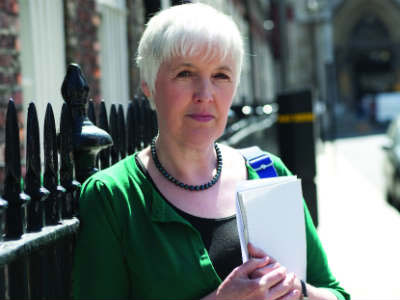
Professor Eileen Munro has remained silent on the government’s decision to reject one of her key recommendations – that councils be legally obliged to provide early intervention for troubled families.
In a report outlining the one-year progress on her proposed reforms, Munro said she hoped the improved inspection process and introduction of health and wellbeing boards, as part of the health reforms, would help prioritise and co-ordinate preventive services.
But although councils have been trying to protect early and preventive children’s services, most did not think this could be maintained in the coming financial year.
Munro also warned agencies not to assume that intervening earlier requires lower levels of skill.
“The future of early help lies very much in the hands of services that work with young people and families, the authorities who commission them and the professional bodies who represent and regulate them,” she said.
“All must co-operate with each other, and with social services in order to help children and young people receive help that might prevent serious concerns from escalating to child protection issues.”
Munro also urged the government to continue monitoring progress on reforming the child protection system, which she said had been a valuable opportunity to reflect on what is happening, highlight examples of good progress, identify concerns and maintain momentum.
It follows her conclusion that the pace of reform now needs to be accelerated because of public sector cuts and rising referrals to children’s social care.
“With less money, it is even more important that professionals’ time is better balanced between supporting families and keeping records,” Munro said.
“It is even more urgent to improve the expertise of social workers and others in helping families resolve problems and create a home that is safe and nurturing enough for children to stay there; it is even more wasteful to go on providing support services that are not improving the children’s care and safety.
“The radical reforms that I have seen in the draft revised statutory guidance and the new inspection framework make this a watershed moment.”
Munro also endorsed suggestions from paediatricians that the National Institute for Clinical Excellence should develop a quality standard for children’s safeguarding to ensure it remains a priority for doctors and nurses as the health reforms start to bite.
In addition, she highlighted a suggestion from Professor Sue White at the University of Birmingham that an “open source” technology project should be set up to provide a successor to the integrated children’s system.
Related articles
Munro review special report


 Assistive technology and dementia: practice tips
Assistive technology and dementia: practice tips  A trauma-informed approach to social work: practice tips
A trauma-informed approach to social work: practice tips 




 Find out how to develop your emotional resilience with our free downloadable guide
Find out how to develop your emotional resilience with our free downloadable guide  Develop your social work career with Community Care’s Careers and Training Guide
Develop your social work career with Community Care’s Careers and Training Guide  ‘Dear Sajid Javid: please end the inappropriate detention of autistic people and those with learning disabilities’
‘Dear Sajid Javid: please end the inappropriate detention of autistic people and those with learning disabilities’ Ofsted calls for power to scrutinise children’s home groups
Ofsted calls for power to scrutinise children’s home groups Seven in eight commissioners paying below ‘minimum rate for home care’
Seven in eight commissioners paying below ‘minimum rate for home care’
 Facebook
Facebook X
X LinkedIn
LinkedIn Instagram
Instagram
Comments are closed.